 James Farmer (jafarmer@iu.edu) is the PI on the Sustainable Food Systems Science initiative and is an associate professor in the School of Public and Environmental Affairs. His research focuses on sustainable food systems and land conservation. Recent projects include a study of the utility of high tunnels for Indiana specialty crop producers; farmer diversification in the tri-state area of Indiana, Michigan, and Ohio; and urban ecology and the role of municipal parks preparing for climate change. James convenes the Human Dimensions Lab and co-directs the IU Campus Farm.
James Farmer (jafarmer@iu.edu) is the PI on the Sustainable Food Systems Science initiative and is an associate professor in the School of Public and Environmental Affairs. His research focuses on sustainable food systems and land conservation. Recent projects include a study of the utility of high tunnels for Indiana specialty crop producers; farmer diversification in the tri-state area of Indiana, Michigan, and Ohio; and urban ecology and the role of municipal parks preparing for climate change. James convenes the Human Dimensions Lab and co-directs the IU Campus Farm.  James Farmer (jafarmer@iu.edu) is the PI on the Sustainable Food Systems Science initiative and is an associate professor in the School of Public and Environmental Affairs. His research focuses on sustainable food systems and land conservation. Recent projects include a study of the utility of high tunnels for Indiana specialty crop producers; farmer diversification in the tri-state area of Indiana, Michigan, and Ohio; and urban ecology and the role of municipal parks preparing for climate change. James convenes the Human Dimensions Lab and co-directs the IU Campus Farm.
James Farmer (jafarmer@iu.edu) is the PI on the Sustainable Food Systems Science initiative and is an associate professor in the School of Public and Environmental Affairs. His research focuses on sustainable food systems and land conservation. Recent projects include a study of the utility of high tunnels for Indiana specialty crop producers; farmer diversification in the tri-state area of Indiana, Michigan, and Ohio; and urban ecology and the role of municipal parks preparing for climate change. James convenes the Human Dimensions Lab and co-directs the IU Campus Farm. 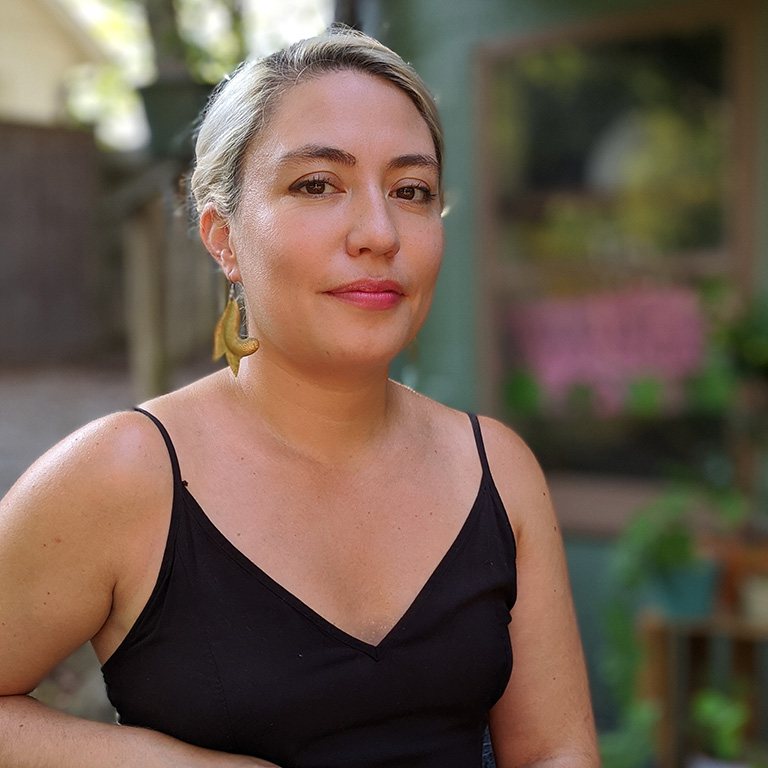 Keitlyn Alcantara (kalcant@iu.edu) is an Anthropological Bioarcheologist in the Department of Anthropology at Indiana University Bloomington. Her work is centered on foodways as tools of empowerment. Melding bioarcheological dietary isotope analyses and ethnographic interviews, her current research contextualizes food sovereignty movements in Late Postclassic and contemporary Tlaxcala, Mexico. As a Mexican American, she is also interested in the ways food is tied to memory, identity, and homeland among Latinx immigrants in the United States (www.sazonnashville.com), and working with the land to develop embodied pedagogies of self-decolonization (www.healinggardeniub.com).
Keitlyn Alcantara (kalcant@iu.edu) is an Anthropological Bioarcheologist in the Department of Anthropology at Indiana University Bloomington. Her work is centered on foodways as tools of empowerment. Melding bioarcheological dietary isotope analyses and ethnographic interviews, her current research contextualizes food sovereignty movements in Late Postclassic and contemporary Tlaxcala, Mexico. As a Mexican American, she is also interested in the ways food is tied to memory, identity, and homeland among Latinx immigrants in the United States (www.sazonnashville.com), and working with the land to develop embodied pedagogies of self-decolonization (www.healinggardeniub.com).
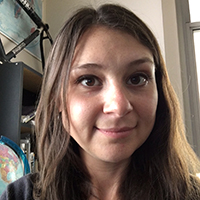 Angela Babb (ababb@umail.iu.edu) is a critical human geographer whose work encompasses critical food studies, ideology, and political ecology of the body. Her research examines the political economy of hunger in the US and the contemporary food movement. She teaches on geographies of food security, food justice, and food sovereignty as a visiting scholar at Indiana University and leads the IU Critical Food Studies Lab.
Angela Babb (ababb@umail.iu.edu) is a critical human geographer whose work encompasses critical food studies, ideology, and political ecology of the body. Her research examines the political economy of hunger in the US and the contemporary food movement. She teaches on geographies of food security, food justice, and food sovereignty as a visiting scholar at Indiana University and leads the IU Critical Food Studies Lab. Eduardo Brondizio (ebrondiz@iu.edu) is a professor of Anthropology at Indiana University where he also directs the Center for the Analysis of Social-Ecological Landscapes (CASEL). Committed for three decades to research on human-environment interaction and social-environmental change in the Amazon region, he has also contributed to several regional and global level assessments, and maintains an active field research program. For the past 10 years, his work has expanded to the study of on rural-urban networks, urban poverty and vulnerability to climate change, and the impact of expanding inter-urban networks and agricultural areas on the governance of indigenous and conservation areas.
Eduardo Brondizio (ebrondiz@iu.edu) is a professor of Anthropology at Indiana University where he also directs the Center for the Analysis of Social-Ecological Landscapes (CASEL). Committed for three decades to research on human-environment interaction and social-environmental change in the Amazon region, he has also contributed to several regional and global level assessments, and maintains an active field research program. For the past 10 years, his work has expanded to the study of on rural-urban networks, urban poverty and vulnerability to climate change, and the impact of expanding inter-urban networks and agricultural areas on the governance of indigenous and conservation areas.
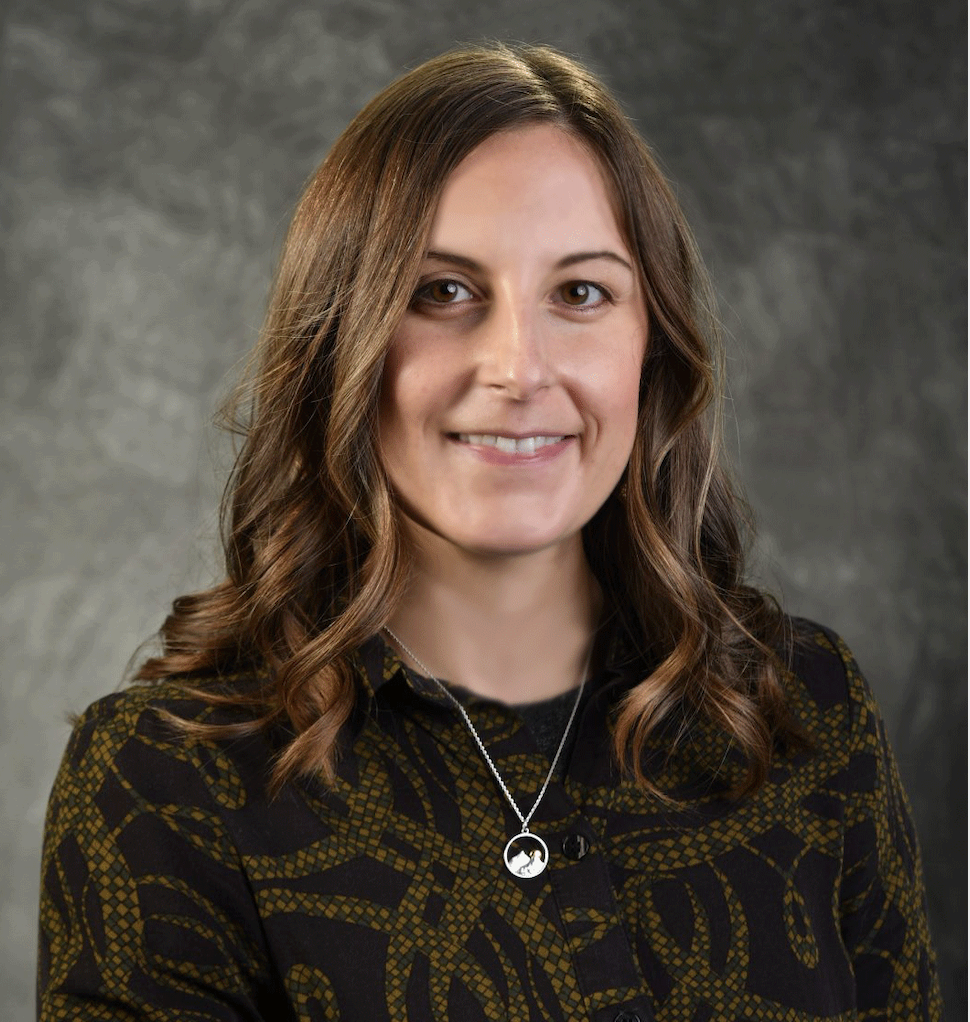
Mecca Burris is a Ph.D. candidate in the Department of Anthropology studying biological anthropology with minors in food anthropology and food policy. She has an M.A. in applied anthropology from the University of South Florida. Her dissertation research focuses on how nutrition, food insecurity, and pesticide exposure impact the growth and development of children and adolescents. She is also involved in projects studying food insecurity among vulnerable groups in rural Indiana.
 Christina Collins (collinct@iu.edu) is an Assistant Professor of Anthropology at Indiana University whose research explores the social, economic, and cultural impact of multinational alcohol companies on local food systems in Ethiopia (as it relates to the country’s domestic alcohol industry). Supported by the US Fulbright Program, her work examines shifts in local drinking patterns, smallholder barley farming practices, and local malt barley distribution processes among other human-relational aspects of the alcohol value chain. She received her PhD from the Department of Cultural Anthropology at Duke University.
Christina Collins (collinct@iu.edu) is an Assistant Professor of Anthropology at Indiana University whose research explores the social, economic, and cultural impact of multinational alcohol companies on local food systems in Ethiopia (as it relates to the country’s domestic alcohol industry). Supported by the US Fulbright Program, her work examines shifts in local drinking patterns, smallholder barley farming practices, and local malt barley distribution processes among other human-relational aspects of the alcohol value chain. She received her PhD from the Department of Cultural Anthropology at Duke University.
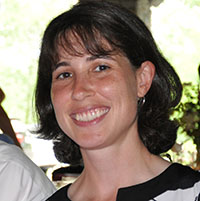 Stephanie Dickinson (sd3@iu.edu) is Senior Biostatistician and Manager of the Biostatistics Consulting Center in the Department of Epidemiology & Biostatistics at the Indiana University School of Public Health in Bloomington, Indiana. She serves as lead statistician on a number of projects in health and medicine including multiple NIH grants. The context of her work centers on research in obesity, nutrition, food systems and sustainability, where her contributions in statistical methods include data management, statistical programming, linear and non-linear models, random effects models, and geospatial mapping. http://biostats.indiana.edu
Stephanie Dickinson (sd3@iu.edu) is Senior Biostatistician and Manager of the Biostatistics Consulting Center in the Department of Epidemiology & Biostatistics at the Indiana University School of Public Health in Bloomington, Indiana. She serves as lead statistician on a number of projects in health and medicine including multiple NIH grants. The context of her work centers on research in obesity, nutrition, food systems and sustainability, where her contributions in statistical methods include data management, statistical programming, linear and non-linear models, random effects models, and geospatial mapping. http://biostats.indiana.edu Valerie Grim (vgrim@iu.edu) is a Professor of African American and African Diaspora Studies at Indiana University-Bloomington. She holds a M.A. and Ph.D. in history from Iowa State University and received the undergraduate degree from Tougaloo College, a Historically Black College located in Tougaloo, Mississippi. She currently holds positions as Director of Undergraduate Studies and Director of the Thomas I. Atkins Living Learning Community. She is the former chair (12 years) of the Department of African American and African Diaspora Studies as well as former Director of Graduate Studies. As a scholar, Grim researches and publishes in the area of twentieth and twenty-first centuries African American agricultural and rural history.
Valerie Grim (vgrim@iu.edu) is a Professor of African American and African Diaspora Studies at Indiana University-Bloomington. She holds a M.A. and Ph.D. in history from Iowa State University and received the undergraduate degree from Tougaloo College, a Historically Black College located in Tougaloo, Mississippi. She currently holds positions as Director of Undergraduate Studies and Director of the Thomas I. Atkins Living Learning Community. She is the former chair (12 years) of the Department of African American and African Diaspora Studies as well as former Director of Graduate Studies. As a scholar, Grim researches and publishes in the area of twentieth and twenty-first centuries African American agricultural and rural history. 
Ariana Gunderson (agunder@iu.edu) is a PhD student in the department of anthropology, studying eating in public and food as a site of quotidian performance. She is interested in restaurants, cities, the fuzzy line between public and private space, and how food embeds individuals within larger structures. In recent months she's been exploring film photography as a part of her fieldwork. You can find more information about her work on her website: arianagunderson.com.
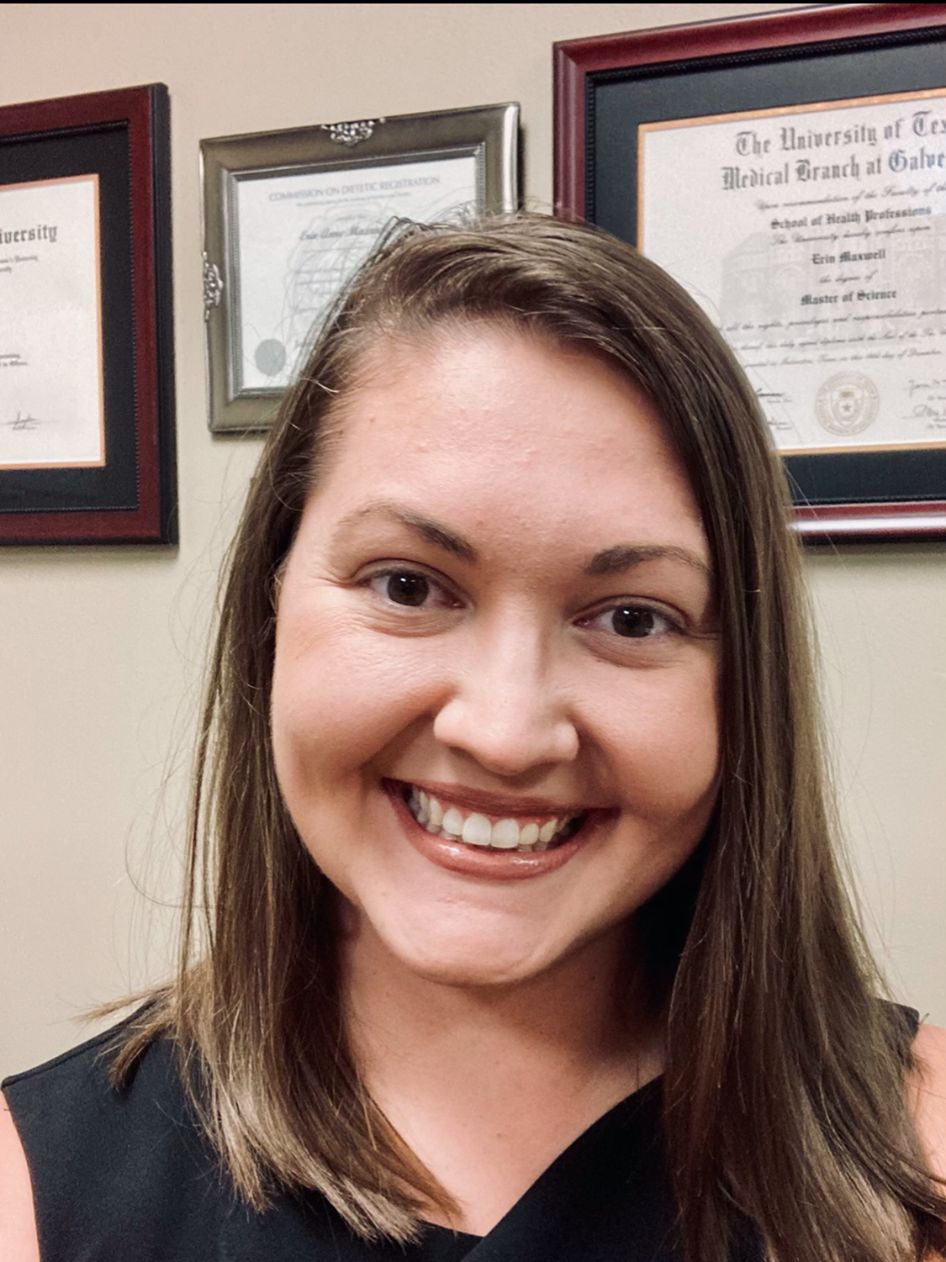 Erin Hosein(erhosein@iu.edu)is a graduate student in the Food. Studies program. Erin graduated from the University of Texas Medical Branch's coordinated MSDI program in 2019 with an MS in Nutrition and Human Metabolism. She is a registered dietitian nutritionist with prior experience in long-term care and school foodservice, her previous position being Director of School Foodservice for an ISD in Texas. Her interests include the relationship between consumption patterns, food policy, and human biological & cultural variation.
Erin Hosein(erhosein@iu.edu)is a graduate student in the Food. Studies program. Erin graduated from the University of Texas Medical Branch's coordinated MSDI program in 2019 with an MS in Nutrition and Human Metabolism. She is a registered dietitian nutritionist with prior experience in long-term care and school foodservice, her previous position being Director of School Foodservice for an ISD in Texas. Her interests include the relationship between consumption patterns, food policy, and human biological & cultural variation.
 Carl Ipsen (cipsen@iu.edu) has a PhD in History and an MA in Demography from UC Berkeley and has been at Indiana University since 1994. He won a Fulbright, was visiting professor at the Institute for Population Research in Rome, and is a fellow of the American Academy in Rome. His major publications include: Dictating Demography: The Problem of Population in Fascist Italy (Cambridge 1996); Italy in the Age of Pinocchio: Children and Danger in the Liberal Era (Palgrave Macmillan, 2006); and Fumo: Italy’s Love Affair with the Cigarette (Stanford, 2016). More recently, he has been working on the history of olive oil. He directed Collins LLC 2011-2018 and founded the IU Food Project in 2015, and takes over as the director fo the IU Food Institute in summer 2018. https://www.carlipsen.com/.
Carl Ipsen (cipsen@iu.edu) has a PhD in History and an MA in Demography from UC Berkeley and has been at Indiana University since 1994. He won a Fulbright, was visiting professor at the Institute for Population Research in Rome, and is a fellow of the American Academy in Rome. His major publications include: Dictating Demography: The Problem of Population in Fascist Italy (Cambridge 1996); Italy in the Age of Pinocchio: Children and Danger in the Liberal Era (Palgrave Macmillan, 2006); and Fumo: Italy’s Love Affair with the Cigarette (Stanford, 2016). More recently, he has been working on the history of olive oil. He directed Collins LLC 2011-2018 and founded the IU Food Project in 2015, and takes over as the director fo the IU Food Institute in summer 2018. https://www.carlipsen.com/.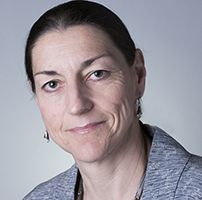 Olga Kalentzidou (okalentz@iu.edu) is a lecturer at the Department of Geography at Indiana University. As an archaeologist her work encompasses the interaction between geographical boundaries and human behavior. Her latest research interests include immigrant foodways; how food insecurity impacts migrant and refugee communities, and other resource-strained groups; and assessment of student learning through community engagement. She has been an active participant in teaching pedagogy and service-learning initiatives, as well as active learning classroom strategies. She teaches courses on foodways, food justice, and urban agriculture.
Olga Kalentzidou (okalentz@iu.edu) is a lecturer at the Department of Geography at Indiana University. As an archaeologist her work encompasses the interaction between geographical boundaries and human behavior. Her latest research interests include immigrant foodways; how food insecurity impacts migrant and refugee communities, and other resource-strained groups; and assessment of student learning through community engagement. She has been an active participant in teaching pedagogy and service-learning initiatives, as well as active learning classroom strategies. She teaches courses on foodways, food justice, and urban agriculture. Dan Knudsen (knudsen@iu.edu) is professor emeritus in the Department of Geography. His food research encompasses topics such as taste, identity, food & farm security and justice.
Dan Knudsen (knudsen@iu.edu) is professor emeritus in the Department of Geography. His food research encompasses topics such as taste, identity, food & farm security and justice. Sarah Osterhoudt (srosterh@iu.edu) is an environmental anthropologist and political ecologist who examines the human dimensions of cultivated landscapes, especially the agro-ecological systems of Northeastern Madagascar, where smallholder farmers cultivate food and market crops including rice, vanilla, coffee, and cloves. Her research has been supported by the Wenner-Gren Foundation, the National Science Foundation, the Fulbright-Hays program, and the Doris Duke Charitable Foundation. She received her PhD from the School of Forestry and Environmental Studies and the Department of Anthropology at Yale University.
Sarah Osterhoudt (srosterh@iu.edu) is an environmental anthropologist and political ecologist who examines the human dimensions of cultivated landscapes, especially the agro-ecological systems of Northeastern Madagascar, where smallholder farmers cultivate food and market crops including rice, vanilla, coffee, and cloves. Her research has been supported by the Wenner-Gren Foundation, the National Science Foundation, the Fulbright-Hays program, and the Doris Duke Charitable Foundation. She received her PhD from the School of Forestry and Environmental Studies and the Department of Anthropology at Yale University. Jennifer Meta Robinson (jenmetar@iu.edu) studies issues of food and culture, focusing on small-scale, alternative agriculture in the US. Her books, Selling Local: Why Local Food Movements Matter (2017, with James Farmer) and The Farmers’ Market Book: Growing Food, Cultivating Community (2007 with J. A. Hartenfeld), describe in-depth, ethnographic case studies of local food systems. An award-winning teacher, she offers courses on these and other issues in the anthropology of food curriculum at IU. Her current research triangulates on sustainable food systems through issues of environment, population migration, and activist organization in five major fieldsites. She lives on a farm in scenic Greene County, Indiana, and enjoys travelling to farmers’ markets around the world. http://www.jennifermetarobinson.com/
Jennifer Meta Robinson (jenmetar@iu.edu) studies issues of food and culture, focusing on small-scale, alternative agriculture in the US. Her books, Selling Local: Why Local Food Movements Matter (2017, with James Farmer) and The Farmers’ Market Book: Growing Food, Cultivating Community (2007 with J. A. Hartenfeld), describe in-depth, ethnographic case studies of local food systems. An award-winning teacher, she offers courses on these and other issues in the anthropology of food curriculum at IU. Her current research triangulates on sustainable food systems through issues of environment, population migration, and activist organization in five major fieldsites. She lives on a farm in scenic Greene County, Indiana, and enjoys travelling to farmers’ markets around the world. http://www.jennifermetarobinson.com/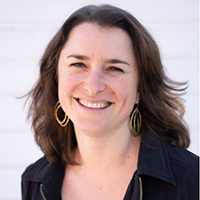 Annie Shattuck (shattuck@iu.edu) is an Assistant Professor in the Department of Geography at Indiana University. Her research draws on political ecology to examine food politics, agrarian change, and rural health. She received her PhD in Geography from the University of California, Berkeley. She is the co-editor of the recent book: Food Sovereignty: Concept, Practice and Social Movements.
Annie Shattuck (shattuck@iu.edu) is an Assistant Professor in the Department of Geography at Indiana University. Her research draws on political ecology to examine food politics, agrarian change, and rural health. She received her PhD in Geography from the University of California, Berkeley. She is the co-editor of the recent book: Food Sovereignty: Concept, Practice and Social Movements.
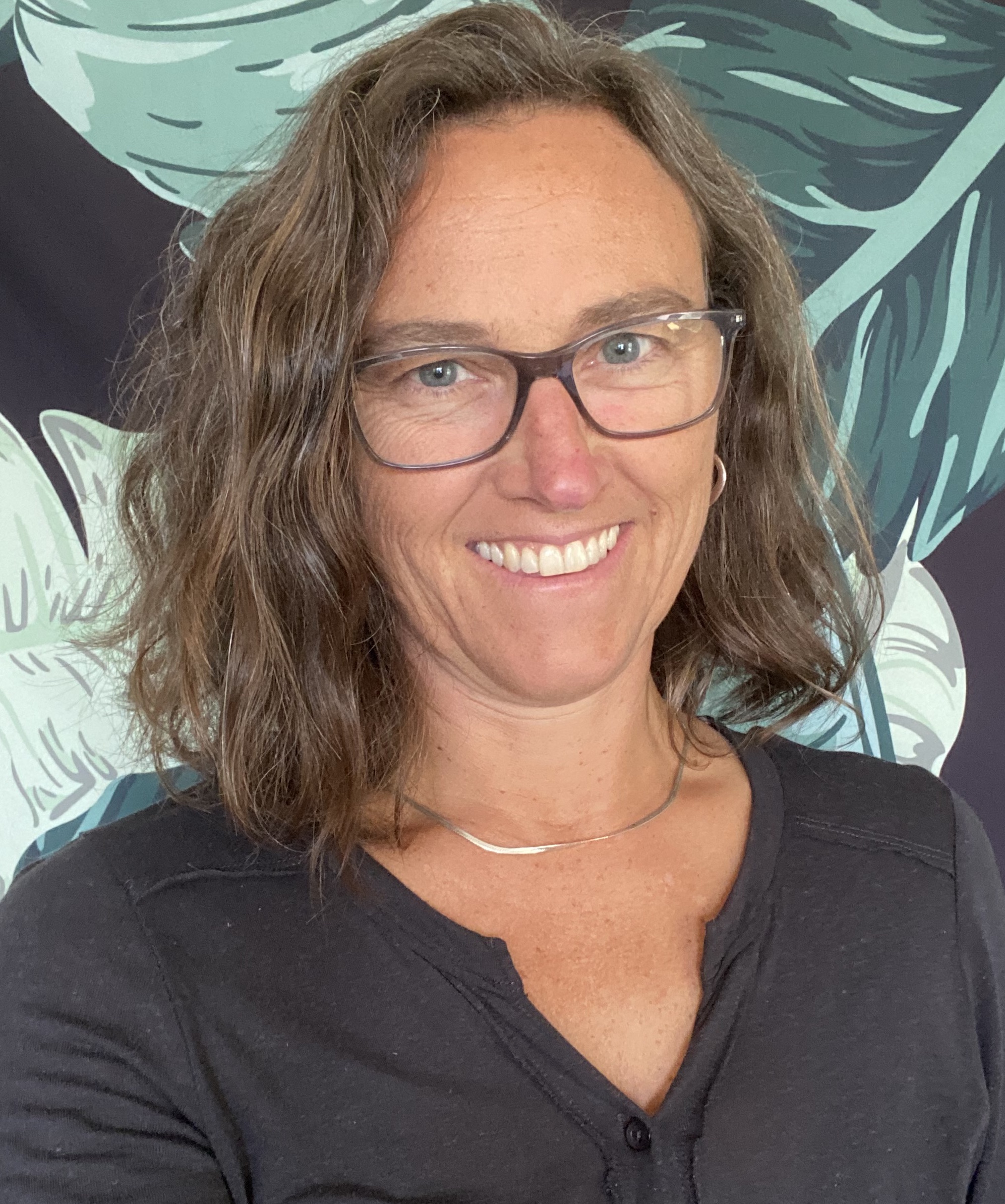 Jodee Smith (ellett@iu.edu) directs the community engagement efforts for SFSS. Jodee has been active in research, education and outreach in the Indiana food system for ten years in multiple capacities including farming, extension, research and implementation projects. Jodee leads the Indiana Value Chain Network and Food Council Network and utilizes an asset-based approach to support community-led initiatives to build more equitable local and regional food systems. Jodee earned a B.A. in Botany from the University of Montana and an M.S. in Plant Biology from the University of California, Davis.
Jodee Smith (ellett@iu.edu) directs the community engagement efforts for SFSS. Jodee has been active in research, education and outreach in the Indiana food system for ten years in multiple capacities including farming, extension, research and implementation projects. Jodee leads the Indiana Value Chain Network and Food Council Network and utilizes an asset-based approach to support community-led initiatives to build more equitable local and regional food systems. Jodee earned a B.A. in Botany from the University of Montana and an M.S. in Plant Biology from the University of California, Davis.
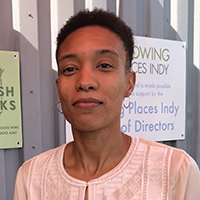 Shellye Suttles (shelsutt@iu.edu) is an agricultural economist whose work encompasses local and regional food systems, municipal food policy, agricultural energy production, and climate change's impact on agricultural land use. Her research applies macroeconomic and microeconomic analysis to a variety of sustainable food system topics. Her areas of interest include energy consumption and opportunities for energy production in the food system, urban agriculture's impact on public health, and socially disadvantaged farmers. She earned an MS and a PhD in Agricultural Economics from Purdue University.
Shellye Suttles (shelsutt@iu.edu) is an agricultural economist whose work encompasses local and regional food systems, municipal food policy, agricultural energy production, and climate change's impact on agricultural land use. Her research applies macroeconomic and microeconomic analysis to a variety of sustainable food system topics. Her areas of interest include energy consumption and opportunities for energy production in the food system, urban agriculture's impact on public health, and socially disadvantaged farmers. She earned an MS and a PhD in Agricultural Economics from Purdue University.
 Peter M. Todd (pmtodd@iu.edu) is a cognitive scientist who studies how people make decisions about important resources in their lives, including food, social partners, and information. After getting a PhD in psychology at Stanford University, he moved to Germany to help found the Center for Adaptive Behavior and Cognition (ABC), based at the Max Planck Institute for Human Development in Berlin; the Center's work was captured in the books Simple Heuristics That Make Us Smart and Ecological Rationality: Intelligence in the World. Todd moved to Indiana University in Bloomington in 2005, where he is now Provost Professor of Cognitive Science, Psychology, and Informatics, and the Director of the Cognitive Science Program. He was also the founding director of the IU Food Institute.
Peter M. Todd (pmtodd@iu.edu) is a cognitive scientist who studies how people make decisions about important resources in their lives, including food, social partners, and information. After getting a PhD in psychology at Stanford University, he moved to Germany to help found the Center for Adaptive Behavior and Cognition (ABC), based at the Max Planck Institute for Human Development in Berlin; the Center's work was captured in the books Simple Heuristics That Make Us Smart and Ecological Rationality: Intelligence in the World. Todd moved to Indiana University in Bloomington in 2005, where he is now Provost Professor of Cognitive Science, Psychology, and Informatics, and the Director of the Cognitive Science Program. He was also the founding director of the IU Food Institute. Public health researcher Julia DeBruicker Valliant (jdv@iu.edu) trained in the social determinants of health. Agriculture and food focus her work, as forces guiding a people's ability to be well in a place. This includes farm policy. Some particular interests include how the history of public health intersects with that of agriculture, and especially animal agriculture; participatory research methods; and multimedia translation.
Public health researcher Julia DeBruicker Valliant (jdv@iu.edu) trained in the social determinants of health. Agriculture and food focus her work, as forces guiding a people's ability to be well in a place. This includes farm policy. Some particular interests include how the history of public health intersects with that of agriculture, and especially animal agriculture; participatory research methods; and multimedia translation. Andrea Wiley (wileya@iu.edu) is a professor of Anthropology at Indiana University. Her research focuses on the role of diet in shaping human biological variation. In particular, her current work has been an investigation of the ways in which human consumption of bovine milk (mainly from cows) impacts important aspects of human biology such as growth, development, and aging. She has conducted fieldwork in India on the trans-Himalayan plateau and in Maharashtra. She is also interested in how diet-related human biological variation is considered (or not) in dietary policies and guidance. She is the author of four books including Re-Imagining Milk (Routledge, 2nd edition 2016) and Cultures of Milk: The Biology and Meaning of Dairy Products in India and the United States (2014, Harvard Univ Press), and is working on a new book on gluten.
Andrea Wiley (wileya@iu.edu) is a professor of Anthropology at Indiana University. Her research focuses on the role of diet in shaping human biological variation. In particular, her current work has been an investigation of the ways in which human consumption of bovine milk (mainly from cows) impacts important aspects of human biology such as growth, development, and aging. She has conducted fieldwork in India on the trans-Himalayan plateau and in Maharashtra. She is also interested in how diet-related human biological variation is considered (or not) in dietary policies and guidance. She is the author of four books including Re-Imagining Milk (Routledge, 2nd edition 2016) and Cultures of Milk: The Biology and Meaning of Dairy Products in India and the United States (2014, Harvard Univ Press), and is working on a new book on gluten.
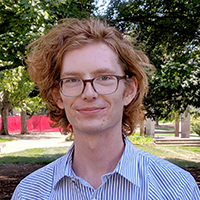 Wesley Zebrowski (wzebrows@iu.edu) is a Ph.D. student in Public Affairs program in the O'Neill School of Public and Environmental Affairs. Wesley graduated in 2018 from Colby College, having earned a B.A. in Government and Environmental Policy. His research applies an interdisciplinary approach to understanding and mitigating the challenges faced by smallholder farming communities. He is currently involved in the SFSS Indiana Project.
Wesley Zebrowski (wzebrows@iu.edu) is a Ph.D. student in Public Affairs program in the O'Neill School of Public and Environmental Affairs. Wesley graduated in 2018 from Colby College, having earned a B.A. in Government and Environmental Policy. His research applies an interdisciplinary approach to understanding and mitigating the challenges faced by smallholder farming communities. He is currently involved in the SFSS Indiana Project.
Past Members
- Jordan Blekking
- Analena Bruce
- Jon Eldon
- Claire Frohman
- Stacey Giroux
- Lewis Hughes
- Kate Mundon-Dixon
- Leila Mzali
- Ruta Śpiewak
- Kurt Waldman


